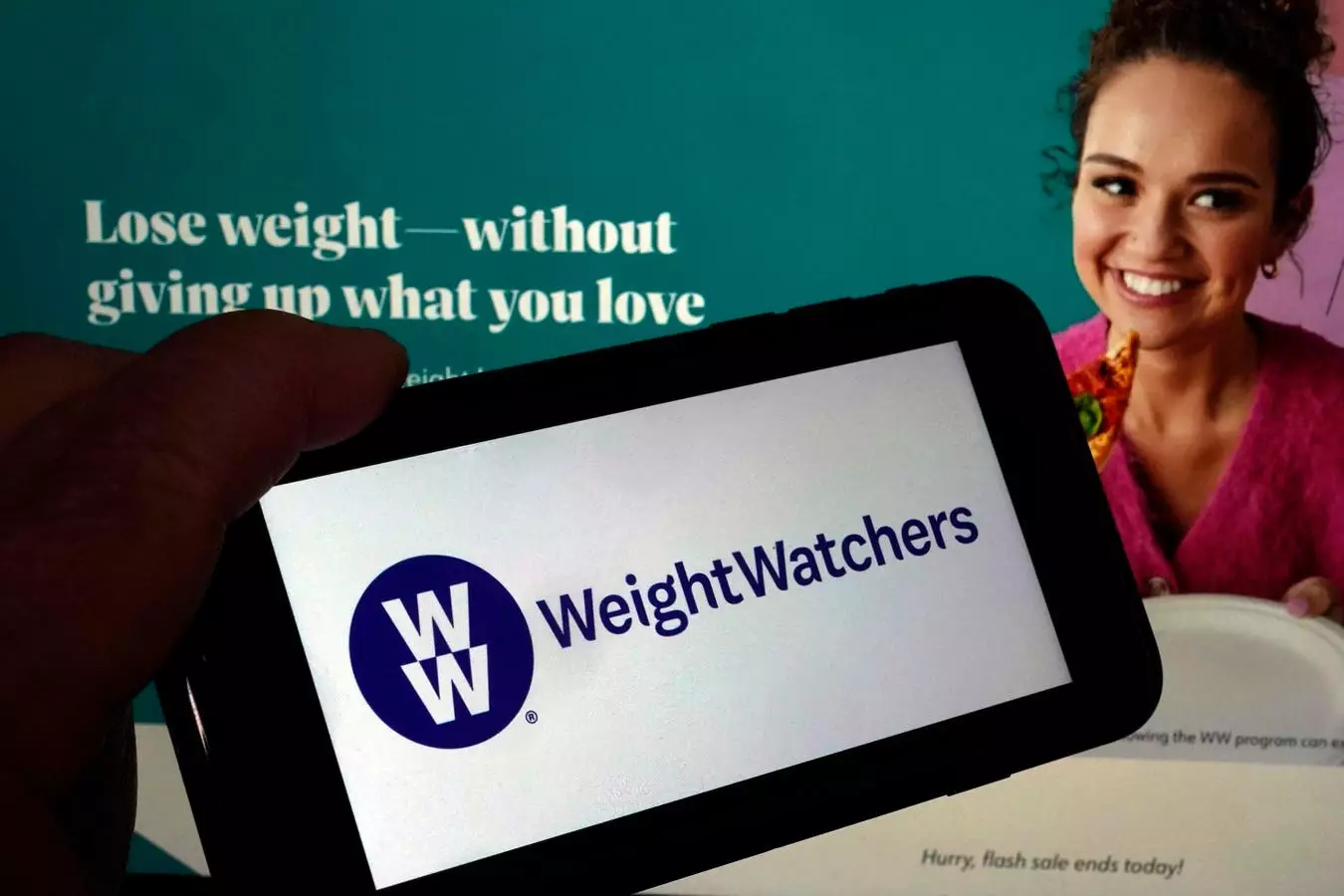The recent news surrounding WW (formerly WeightWatchers) filing for bankruptcy serves as a poignant reminder of how the weight loss industry is navigating a significant cultural transformation. No longer does shedding pounds hinge on communal efforts and personal connections; the landscape is now overtaken by technology, pharmaceutical advancements, and an increasingly clinical approach. This evolution reflects not just a business plight but also a shift in societal values regarding food, health, and body image.
WeightWatchers has long been more than just a weight loss program; it was an emblem of connection, where individuals bonded over shared challenges and triumphs. The weekly workshops and in-person weigh-ins fostered a sense of belonging that went beyond simple calorie counting. However, as the world leans toward digital solutions and individualized treatments like GLP-1 medications, the essence of community could be at risk. Is convenience overshadowing connection? Are we losing the unique joy that once accompanied shared experiences?
Pharmaceutical Solutions vs. Social Support
WW’s transition into a modern health company—evidenced by its acquisition of the telehealth platform Sequence—is a pivotal move that underscores the dilemma of evolving health paradigms. Now, the conversation about weight loss is increasingly reduced to clinical outcomes driven by medications like Ozempic and Wegovy. A study published in the New England Journal of Medicine has shown impressive weight loss outcomes when utilizing these drugs alongside lifestyle changes. However, this emphasizes an essential question: what happens to those who thrive on social interactions and structured support?
While it’s undeniable that medical approaches can help many, they risk simplifying the complex, often deeply personal struggles related to weight. Obesity and health are entangled within larger societal frameworks—food deserts, economic disparities, and mental health challenges. To focus solely on biology is to overlook these profound influences. Perhaps the greatest value WW provided was a space for real conversation about these intricate issues, an avenue now increasingly endangered.
Generational Shifts and Changing Expectations
The appeal of WeightWatchers has waned not only due to the rise of electronic solutions but also as a result of shifting generational attitudes toward food and wellness. Gen Z’s focus on authenticity, mental health, and sustainability has fostered a more intuitive relationship with food rather than a rigid, rules-based approach. The numbers tell the story: this generation is gravitating toward functional foods that nurture the body and respect the planet.
Moreover, Millennials are contending with intense lifestyle changes as they juggle work-life balance and childcare. The substantial rise in frozen food spending among this group indicates a preference for convenience—food that fits into a busy schedule rather than prescriptive weight loss plans. Even Baby Boomers, who once shaped WW’s core demographic, are adapting to technological advancements but continue to crave human interactions that foster genuine connections over the impersonal nature of apps.
The Diminishing Value of Shared Spaces
The decline of WW propels us into a broader narrative about the vanishing spaces that once fostered togetherness around food and care. When losing weight transforms into a solitary experience driven by apps and clinical settings, we risk losing the laughter and empathy derived from shared struggles. In a world that increasingly favors digital efficiency, we must grapple with what is sacrificed in the process.
Once filled with vibrant conversations and mutual support, the weekly WW meetings offered solace and solidarity. The emotional dimensions of weight loss aren’t merely personal; they are connected, intertwining lives and experiences. As we shift into a reality dominated by individualized approaches, we must seriously consider whether efficiency truly compensates for the warmth and connection that comes from communal experiences.
Moving forward, we are left to ponder: In our rapid embrace of technology and clinical strategies, what are we willing to forgo? Are we prepared to navigate our health journeys in solitude, or will we find ways to evolve community spaces that meet the needs of modern wellness? The path forward isn’t simply about choosing between medication or connection; instead, it demands an exploration of how we can cultivate meaningful interactions amid our changing landscape.


Leave a Reply